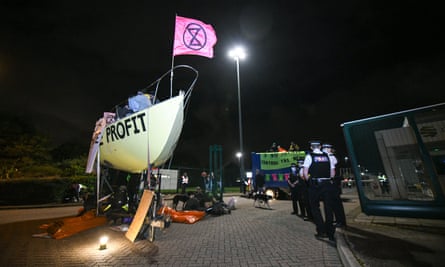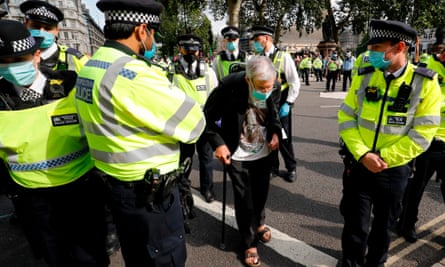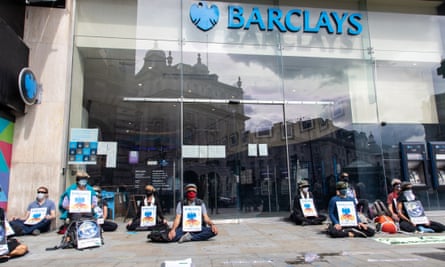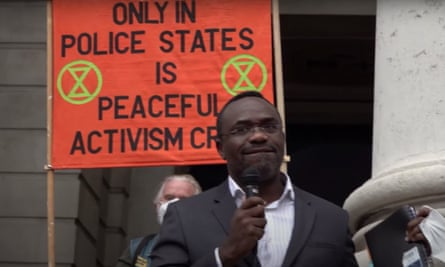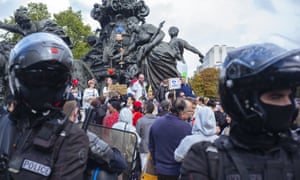Exclusive: Leaked meeting notes show Boris Johnson said Trump was 'making America great again'
The Prime Minister is quoted telling the US ambassador in August 2017, when foreign secretary, that Mr Trump was doing 'fantastic stuff'
By Ben Riley-Smith,
US EDITOR
5 September 2020 • 9:38pm
Boris Johnson and Donald Trump
Boris Johnson privately told US diplomats that Donald Trump was “making America great again”, according to a cache of official notes taken during high-level UK-US meetings whose details have leaked to The Telegraph.
The Prime Minister is quoted telling the US ambassador to Britain in August 2017, when he was foreign secretary, that Mr Trump was doing “fantastic stuff” on foreign policy issues like China, Syria and North Korea.
Other records show Mr Johnson claimed the US president was becoming “increasingly popular” in Britain in 2017 and spoke warmly about how under his leadership America was “back and engaged in the world”.
Mr Johnson's praise for Mr Trump in private goes much further than he usually does in public, and is eye-catching given polls consistently show a majority of the British people disapprove of the US president. Its disclosure could see the Prime Minister get dragged into the US election campaign, with the president eager to tout overseas support and Democratic nominee Joe Biden already on-record once calling Mr Johnson a Trump "clone".
The contemporaneous notes were taken by US officials during seven meetings and calls involving either the leader or top foreign minister of Britain or America.
Additionally this newspaper has spoken to more than 20 people who saw the UK-US relationship up-close under Mr Trump, including from senior posts in the White House, Downing Street, Foreign Office and State Department.
Taken together, they paint one of the most detailed pictures to date of how strained the 'special relationship' has been behind closed doors during Mr Trump’s first term.
It can also be reported:
Mr Trump pushed back hard on Theresa May’s pleas to expel Russian diplomats after the Skripal poisoning, saying “I would rather follow than lead”
The US president wondered why there was so much “hatred” in Northern Ireland and asked Mrs May during a lunch why Mr Johnson was not prime minister
Mr Johnson built close working relationships with Jared Kushner, the president’s son-in-law, and adviser Stephen Miller, while forging ties with the Trump inner circle
The president was at times "hectoring" towards Mrs May in "nightmare" phone calls and would ask other world leaders what they thought of her
Mr Trump cancelled his planned first visit to Britain as president at the last minute over the schedule and scrapped a call with Mrs May due to a foreign policy clash.
Since taking office in January 2017 Mr Trump has dealt with two prime ministers, first Mrs May until she stood down in July 2019 and then Mr Johnson, her successor.
While his personal relationship with Mrs May was strained at times, he has developed a warmer bond with Mr Johnson, who he has called a friend and “Britain Trump”.
The information leaked to The Telegraph includes details of three conversations Mr Johnson had with senior US officials when foreign secretary, and shows how he praised Mr Trump away from the cameras.
One meeting described in the notes saw Mr Johnson meet Woody Johnson, the then newly appointed US ambassador to the UK, in the Foreign Office on 29 August 2017.
Excellent 1st meeting w/ Sec. @BorisJohnson at the @foreignoffice. The U.S.-UK relationship remains a cornerstone of U.S. foreign policy. pic.twitter.com/xrTmEnl116 — Ambassador Johnson (@USAmbUK) August 29, 2017
“We were initially anxious about the US foreign policy but Trump has been doing fantastic stuff on Syria, North Korea, China, Afghanistan”, Mr Johnson said, according to the notes. “America is back under Trump”, Mr Johnson is quoted saying at one point. At another he said “we’ll solve problems together”, adding: “The president is making America great again”.
Mr Johnson’s echoing of Mr Trump’s 2016 campaign slogan, Make America Great Again, or MAGA for short, will raise eyebrows given it is the rallying cry for the president’s supporters, who wear red baseball caps bearing the words.
A second conversation was between Mr Trump and Mike Pompeo, the US secretary of state, when they spoke on the phone on June 7 2018, right before the president's trip to Britain.
“The visit’s going to be very important. We’re going to give him a great time,” Mr Johnson said, according to the notes, adding later: “The president is increasingly popular in the UK.” Mr Pompeo is quoted responding: “We’ll put him on a street corner of Piccadilly. He can shake hands with people. That would be great.” Mr Johnson added: “That would be crazy.”
The tone of the last comments described is unknown but appears to be tongue in cheek. It is also unclear whether there was evidence backing up Mr Johnson’s ”increasingly popular" claim.
A poll of Britons conducted by YouGov the week before found 74 per cent of respondents had an unfavourable view of Mr Trump while just 16 per cent had a favourable view. A third meeting involving Mr Johnson came on May 26 2017.
He met Rex Tillerson, then the US secretary of state, at 1 Carlton Gardens, the foreign secretary’s official residence in London. At one point, according to the notes, Mr Johnson said: “It’s great to see America is back and engaged in the world with a different tempo. We think that is going to have an impact, especially on Russia’s thinking.”
Mr Tillerson is quoted responding: “Russia needs to receive a consistent message from everyone. The future is not with Iran and not with Assad [the Syrian dictator].”
In all three meetings Mr Johnson pushed the UK’s foreign policy positions despite differences with the US - something his supporters will likely point to as an advantage of having a good relationship with Mr Trump.
According to the notes Mr Johnson told Ambassador Johnson not to scrap the Iran nuclear deal, pressed Mr Tillerson on the importance of securing peace in Syria and expressed regret to Mr Pompeo that the US could leave the United Nations’s Human Rights Council.
The other four meetings at which notes were taken are a May-Trump lunch in January 2017, a May-Trump call in March 2018 and two briefings Mr Trump got in the White House, one ahead of a call with Mrs May and the other before a UK visit.
Approached for comment, a Number 10 spokesman said: “The Prime Minister is committed to the extremely important relationship between the UK and US and to enhancing the work we do together to ensure the prosperity and security of our citizens.” The White House declined to comment.
The White House lunch
One of the most eye-catching meetings came in January 2017. Mrs May had jetted out to Washington DC just days after Mr Trump’s inauguration, seeking to put past criticism of the new US president behind her and build a strong working relationship.
Becoming the first world leader to be hosted by Mr Trump in the White House was a diplomatic coup, part of a deliberate strategy to get close to the world’s most powerful politician early and, if possible, shape his thinking.
Now, as the two leaders settled down with a handful of their closest advisers for lunch in the president’s residence on January 27 2017, here was a chance to strike up a rapport away from the more formal policy discussions.
“Isn’t this place great? It’s so great,” Mr Trump began, enthusing about his new home as his guests settled in for the meal. “I’ve been to Buckingham Palace before and that’s greater." Only a few days into the job, Mr Trump was still seething over claims his inauguration had been poorly attended.
He defended the size of the crowd and then compared the anti-Trump Women's March with the anti-abortion March for Life. The president then picked up the theme. “Abortion is such a tough issue”, he said, touching on a topic that has been a dividing line in US politics for decades.
He wanted to know where Mrs May stood. Pro-choice or pro-life?
“Imagine some animal with tattoos raping your daughter and then she gets pregnant”, the president said, according to the notes, graphically outlining the case for allowing abortion.
Mr Trump then pointed at Mike Pence, the US vice president known for being deeply religious. “He’s a really tough one on abortion”, he is quoted saying, before again Mrs May for her view. The then prime minister offered a careful response - “diplomatically threading the needle” according to one source familiar with the conversation - before shifting the discussion back to safer ground.
“We should look at a UK-US trade agreement”, Mrs May said, according to the notes, bringing up something held by Brexiteers as a great prize awaiting Britain once the country left the European Union. The problem, as explained to the president, was that London and Washington could not start negotiating formally until Britain was outside the EU, which could take two years.
“That is so unfair, how can the EU limit you?" Mr Trump is quoted asking. But he was already making preparations. Gary Cohn, the former president of Goldman Sachs who was then Mr Trump’s top economic adviser, would lead talks for the US.
“The guy from our side on trade would be Gary Cohn,” Mr Trump said, according to the notes, name-checking his new hire. “That guy used to pay $175 million in taxes a year and now makes $170,000 a year. Incredible.”
Brexit and Tory scheming
Mr Trump, a longtime critic of the EU, wanted to know if more member countries would quit the block. “No I don’t think so and we don’t want them to,” Mrs May is quoted saying. “It’s better for the EU to stick together but the EU does need reform.”
The president had been a prominent supporter of Brexit and appeared eager to understand better the origins of the referendum. “What about Brexit? Did Cameron make a mistake?” he asked Mrs May, according to the notes.
“Look, it’s Conservative Party politics”, she is quoted responding, urging Nick Timothy, her joint chief of staff who was present, to explain how Mr Cameron felt forced to call a vote because of Tory splits on the issue.
“Why isn’t Boris Johnson the prime minister? Didn’t he want the job?” Mr Trump then asked, according to the notes, probing about the political career of the man who headed up the Leave campaign and would ultimately play a part in toppling Mrs May.
When Mrs May explained how the Tory leadership race played out - which saw Mr Johnson withdraw after losing the support of Michael Gove - Mr Trump is quoted responding: “Oh, so you were drafted like in baseball. But really I think you were plotting this all along.”
Then came a discussion about how immigration impacted the Brexit vote. Mrs May said it was a factor but “part of a larger issue about borders and sovereignty”.
Once again, the US president picked up a theme and ran with it. “We are going to get tough on immigration,” Mr Trump said, according to the notes. “The Europeans have opened their doors to bad people. We will not have a Paris."
That line appears to be a reference to past terror attacks in the French capital. “Crime is way up in Germany. Women are getting raped all over the place,” Mr Trump is quoted continuing, singling out Angela Merkel, the German chancellor, for criticism. “Merkel will lose her next election.” Mrs May disagreed.
“No, I don’t think she will. She’s the best politician in Europe right now,” the British leader said, according to the notes. Later that year Mrs May was proved right. Mrs Merkel was re-elected.
Northern Ireland 'hatred'
At one point during the lunch Mr Trump wanted to know about Northern Ireland. How it would fare after Brexit, given its position inside the UK but sharing a land border with Ireland, an EU member, was a critical issue in talks.
“What about Northern Ireland?” Mr Trump asked, according to the notes. “There’s such hatred there. I just don’t understand where it comes from." Mr Trump is quoted then jumping to Scotland and calling Alex Salmond a “loser”.
He had a long-running feud with the former Scottish first minister over wind farms construction near one of his golf Scottish courses. As the lunch neared its end the conversation turned to relations with Russia, an issue that hung over Mr Trump’s early presidency given the FBI investigation into Kremlin interference in the election he won.
Mr Trump asked his national security adviser Michael Flynn why he had not been informed of a call from Vladimir Putin, the Russian president - a fact mentioned briefly in the notes but which others present have since called a heated exchange.
Mrs May, a critic of the Russian leader, then offered the US president a warning. “You have to engage with Putin but beware,” she said, according to the notes. “He only respects strength. You have to be tough.” Offering a different opinion that foreshadowed future tensions, Mr Trump waved away her concerns.
“I have to talk to this guy,” the president said. “He has a thousand nukes. This isn’t the Congo.”
The Telegraph read out the notes to two people in the room for the lunch who confirmed their accuracy. A third person who did not attend but is familiar with the US record of the meeting said likewise.
Skripal poisoning clash
One of the most testing times in UK-US relations under Mr Trump came after Sergei Skripal, the former Russian spy who defected to Britain, and his daughter Yulia were poisoned with the nerve agent Novichok in Salisbury.
Mrs May publicly accused the Russian government of being behind the attack and spent much of March 2018, the month of the attack, rallying Western allies to jointly expel Russian spies in retaliation. It was a major test for the new UK-US relationship.
Mrs May was seeking solidarity from the White House over a chemical attack on British soil. But leaked notes from one call between Mr Trump and Mrs May reveal how hard he pushed back. “We really need your leadership on this”, Mrs May said, according to the notes. “No, I would rather follow than lead,” Mr Trump is quoted responding.
The call was in March, though the exact date is unclear. They talked more than once that month. The president is quoted carrying on: “Angela [Merkel] is doing nothing. She is feeding the beast. I have done stuff and the EU has to do something. We are paying for their defence.” Mrs May tried again.
“Three children fell ill after feeding ducks there”, she is quoted saying, referring to the hospitalisation of children who had been in the park where Mr Skripal was found. “Yes, it’s horrible and disgusting”, Mr Trump agreed. “The US and the UK must stand together on this”, Mrs May said, according to the notes.
Mr Trump is quoted countering: “No, all of us have to be together. Germany has to do something. You have to put together a coalition.” According to the notes he went on: “I’m not willing for the US to go first and then have others not to do anything. Germany has to do something.”
The exchange reveals how firmly Mr Trump argued against expelling Russian spies. At a moment of vulnerability for Mrs May, when she sought allies to stand by her side to show solidarity against Russian aggression, Mr Trump demurred.
One US official who listened to the call told a colleague Mrs May got so frustrated her voice cracked and that at two points the person thought she would either "scream or start crying". Former May aides and White House figures have dismissed the idea she came close to tears in any call with Mr Trump, speculating that Mrs May's voice cracking, as it did sometimes regardless of emotion, had been misinterpreted.
Eventually the president agreed to expel 60 Russian diplomats - more than any other country. He was, according to The Washington Post, later infuriated when Germany and France only expelled four each, accusing aides of misleading him.
Eye rolls and cracked voices
Almost every UK and US source who discussed the Trump-May relationship with The Telegraph said the two leaders did not have a natural chemistry and at times their telephone calls could be trying. More than half a dozen people who listened to their calls shared thoughts.
Mr Trump’s tone was at times described as “bullying” and “mansplaining”. He often ignored the agreed topics of discussion, going on long monologues. Mrs May sometimes sounded “bemused” and exasperated, trying to bring Mr Trump back to the issues at hand.
She also stood her ground, sources on both sides say, willing to tell the president he was wrong during policy disagreements. During some calls they had pleasant conversations, such as when he said Mrs May could become the new Winston Churchill if she pulled off Brexit.
Most often they simply “talked past each other”. Occasionally, though, the calls were “nightmarish”.
“It is hectoring, it is relentless, it is forceful, it is difficult to get a word in,” one ex-May adviser who listened in said of Mr Trump's speaking style on the phone. “She would go, ‘yes Donald, Donald, Donald’”, attempting to interrupt.
Advisers heading to the secure room in the Number 10 basement used for Trump calls would pick up non-verbal signs Mrs May knew what was coming. “Every now and then you might get an eye roll”, one said, or a raised eyebrow. Aides called it "the look".
At times advisers would be told to see what Mr Trump had done recently that he viewed as a success so that Mrs May could begin the call with a compliment in an attempt to massage the president’s ego, but it rarely worked. Mr Trump, on the other hand, would ask world leaders for their views on Mrs May.
"He would say to Merkel or Macron about Theresa May 'Well, what do you think now? She's blown it with that election. What do you think about Boris Johnson?'” said a former White House adviser, who stressed he did the same about other leaders too.
The same source said: "He thought she made two big mistakes. Having a general election [in 2017] and losing her majority and not being bold enough to pull off the band aid and go over the cliff on Brexit.”
Cancelled meetings and calls
On December 6 2017 Mr Trump was due to call Mrs May about his decision to move America’s Israeli embassy from Tel Aviv to Jerusalem, delivering on a campaign promise but risking inflaming tensions in the region.
Told by advisers during a pre-call briefing that Mrs May would likely express opposition to the move, the president abruptly cancelled the appointment, according to the notes.
Mr Trump was due to call Mrs May about his decision to move America’s Israeli embassy from Tel Aviv to Jerusalem. Told by advisers during a pre-call briefing that Mrs May would likely express opposition to the move, the president abruptly cancelled the appointment
One US official in the room told a colleague Mr Trump had a “hissy fit”. The following month the US president was getting briefed on his upcoming UK trip, the details of which had been largely locked in. It would have been his first visit to Britain since taking office and had been long-awaited.
White House National Security Council officials, running through the itinerary, told Mr Trump he would lead an opening ceremony for the new US embassy, which had moved from Grosvenor Square, in central London, to south of the Thames.
“I don’t want to go," Mr Trump interjected, according to notes of the meeting on January 10 2018. "I hate the new embassy which was a terrible real estate decision. So I will not go and do a ribbon cutting." The sudden about-turn sent officials in the State Department scrambling to work with Downing Street counterparts on a public statement explaining the trip's collapse.
Spinners on both sides agreed to downplay just how far along plans for the visit were. Mr Trump became fixated on the cost of the new embassy, claiming his predecessor Barack Obama had wasted money on it. One May aide recalls the president spending 20 minutes on the phone telling Mrs May why it was such an "idiotic" project. It would be another six months before Mr Trump made it to Britain.
Boris woos team Trump
Away from the more formal channels, Mr Johnson had success getting close to members of Mr Trump’s inner circle, thereby improving his standing and influence with the US president, according to numerous sources on both sides.
Mr Johnson was one of the first UK government figures to meet Mr Trump’s team after his shock White House victory in November 2016, flying across for meetings in the president-elect’s New York base, Trump Tower, in January 2017.
While Mr Johnson was ordered not to meet Mr Trump during the trip - Mrs May’s top aides were suspicious of Mr Johnson and wanted her to be the first UK minister to meet the president-elect - he did build contacts with key Trump advisers.
One influential figure Mr Johnson has had repeated discussions with is Stephen Miller, the US president’s adviser credited with driving his hardline immigration policy agenda. When Mr Trump announced his so-called “Muslim ban” shortly after taking office, it was Mr Johnson who managed to carve out a British exemption over a frantic weekend that followed.
Some UK and US officials believe it came through talks with Mr Miller. Mr Miller would often see Mr Johnson when he visited. One former White House official recalled Mr Miller describing Mr Johnson as a “friend” and claiming the then foreign secretary had helped him with speeches.
Mr Miller once asked for an internal briefing for what a White House official believed was an “off the books” one-on-one meeting with Mr Johnson, though if it happened numerous UK embassy figures were unaware. The pair did meet in May 2018 when Mr Johnson held a reception at the British ambassador's residence in Washington DC during a visit.
Only around 20 Republican operatives were invited, including Mr Miller, who is aged 35. Mr Miller and Mr Johnson were seen chatting warmly together, discussing plans for Mr Trump’s upcoming trip to Britain. "They were all totally dazzled by him,” said one attendee of the guests and Mr Johnson.
Similarly Mr Johnson struck up a relationship with Jared Kushner, Mr Trump’s son-in-law and a senior White House adviser often credited with influencing the president’s thinking on foreign policy matters, especially the Middle East. Multiple US and UK officials believed the men were in regular text contact.
John Bolton, Mr Trump’s former national security adviser, recalls in his book being surprised to discover Mr Johnson called Mr Kushner, now aged 39, to discuss a potential Syrian air strike. The connections have allowed Mr Johnson, who once called Mr Trump “unfit” to be president over comments made about London’s safety when he was mayor, to be seen not as a 'never Trumper' but a like-minded ally.
“Boris is not Steve Bannon or a Trump ideologist,” one well-placed UK source said. "But Stephen Miller probably thinks that. They believed he was part of their grand world view". It is a belief still held in the White House to this day.
https://www.telegraph.co.uk/news/2020/09/05/exclusive-leaked-meeting-notes-show-boris-johnson-said-trump/

